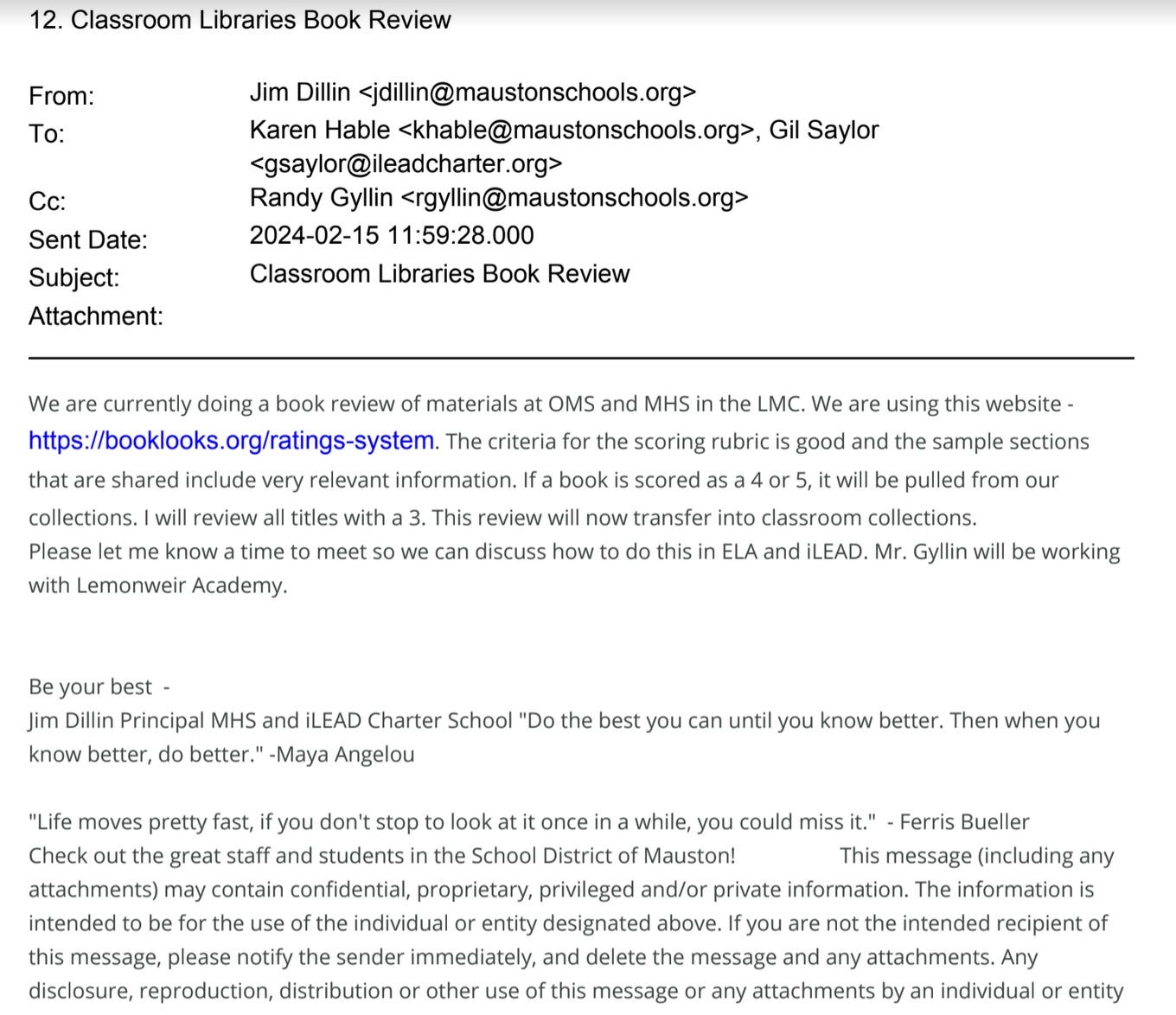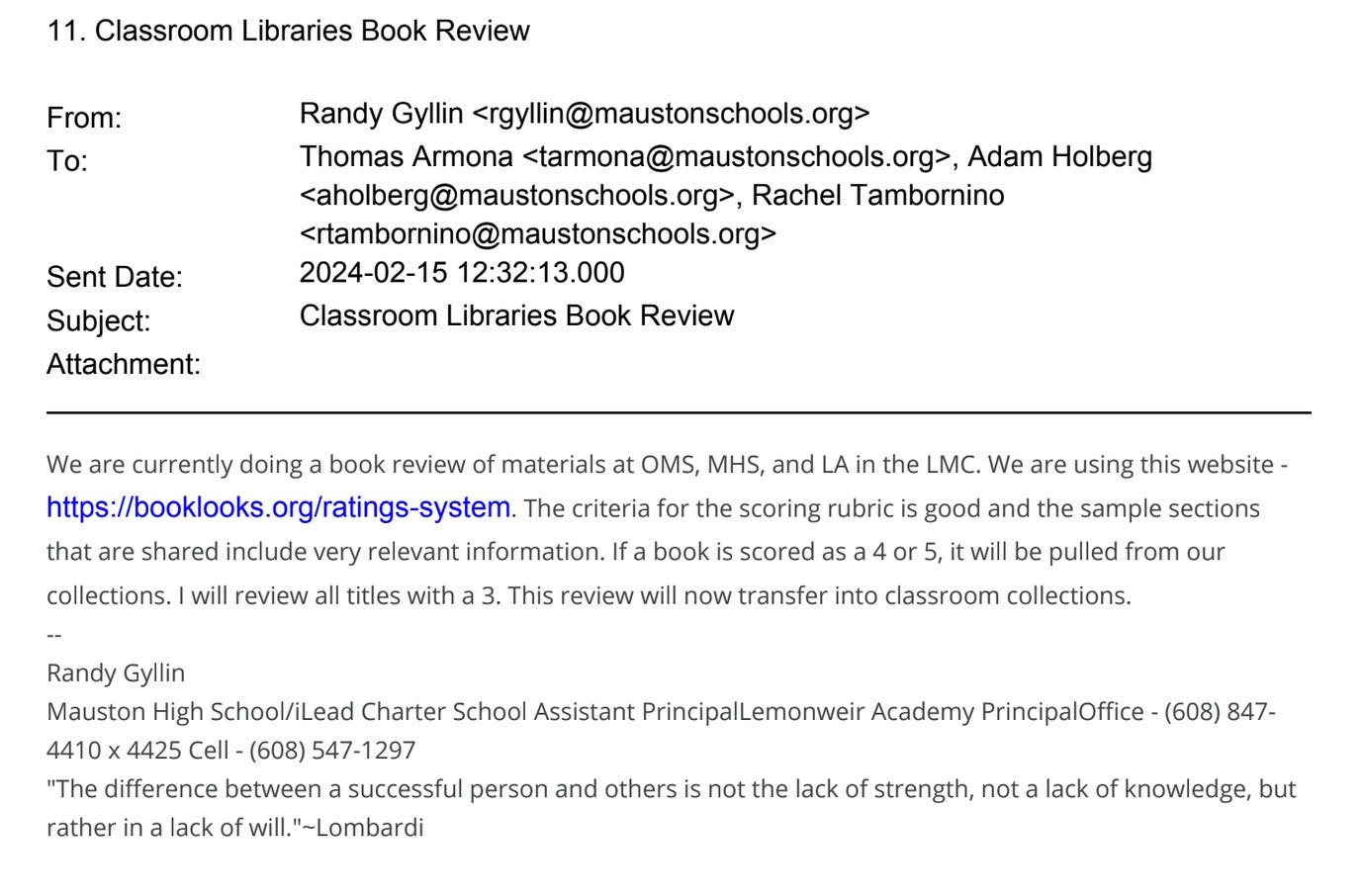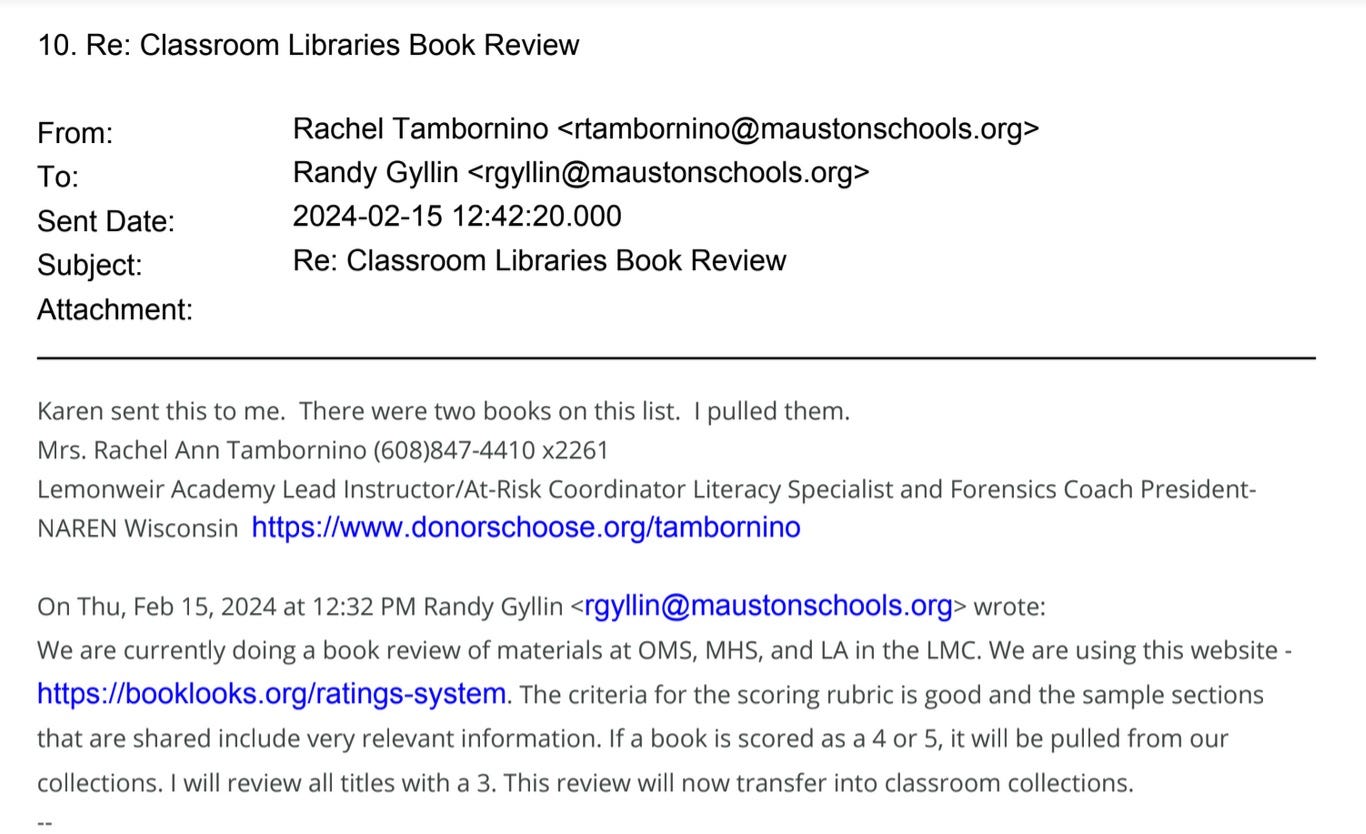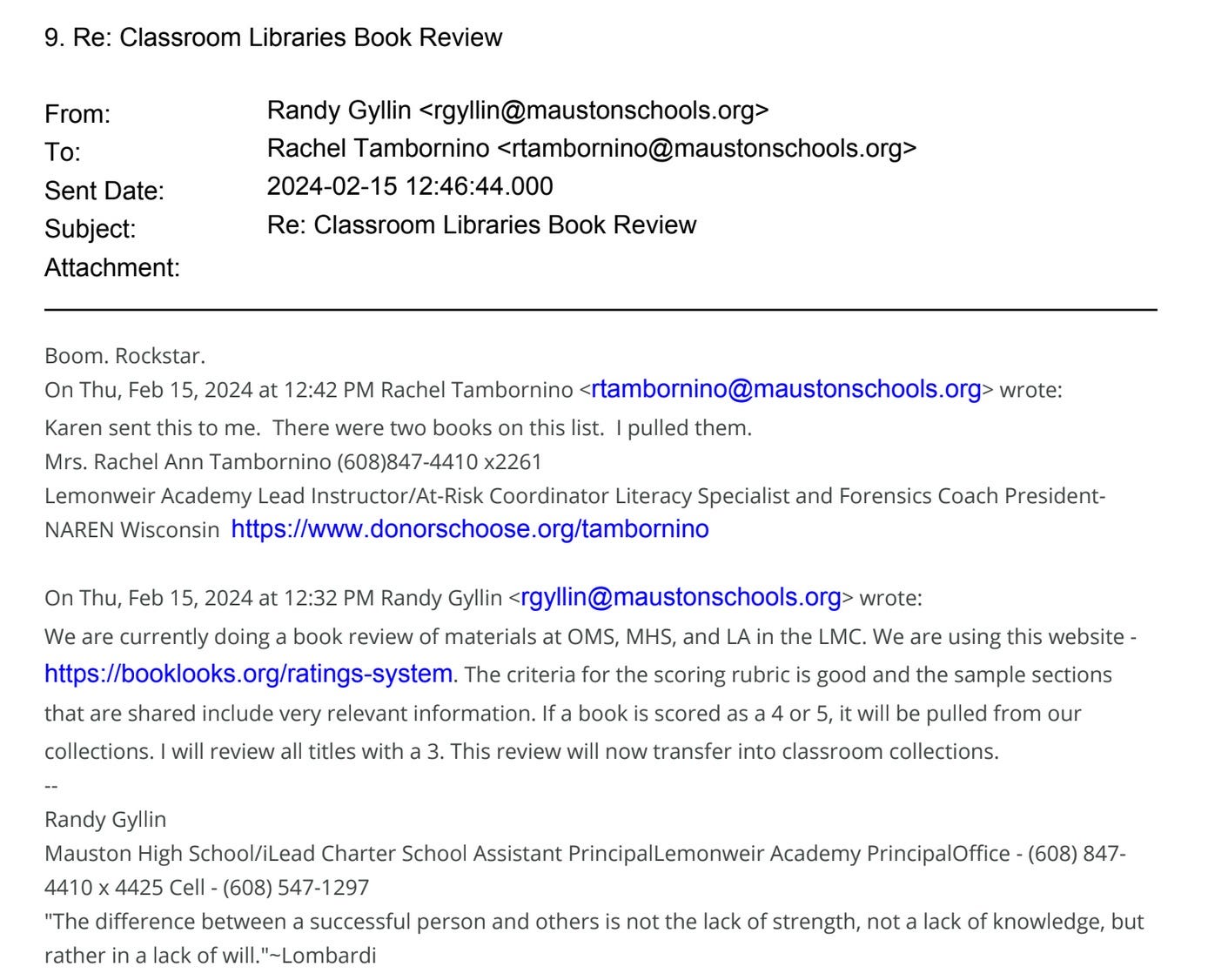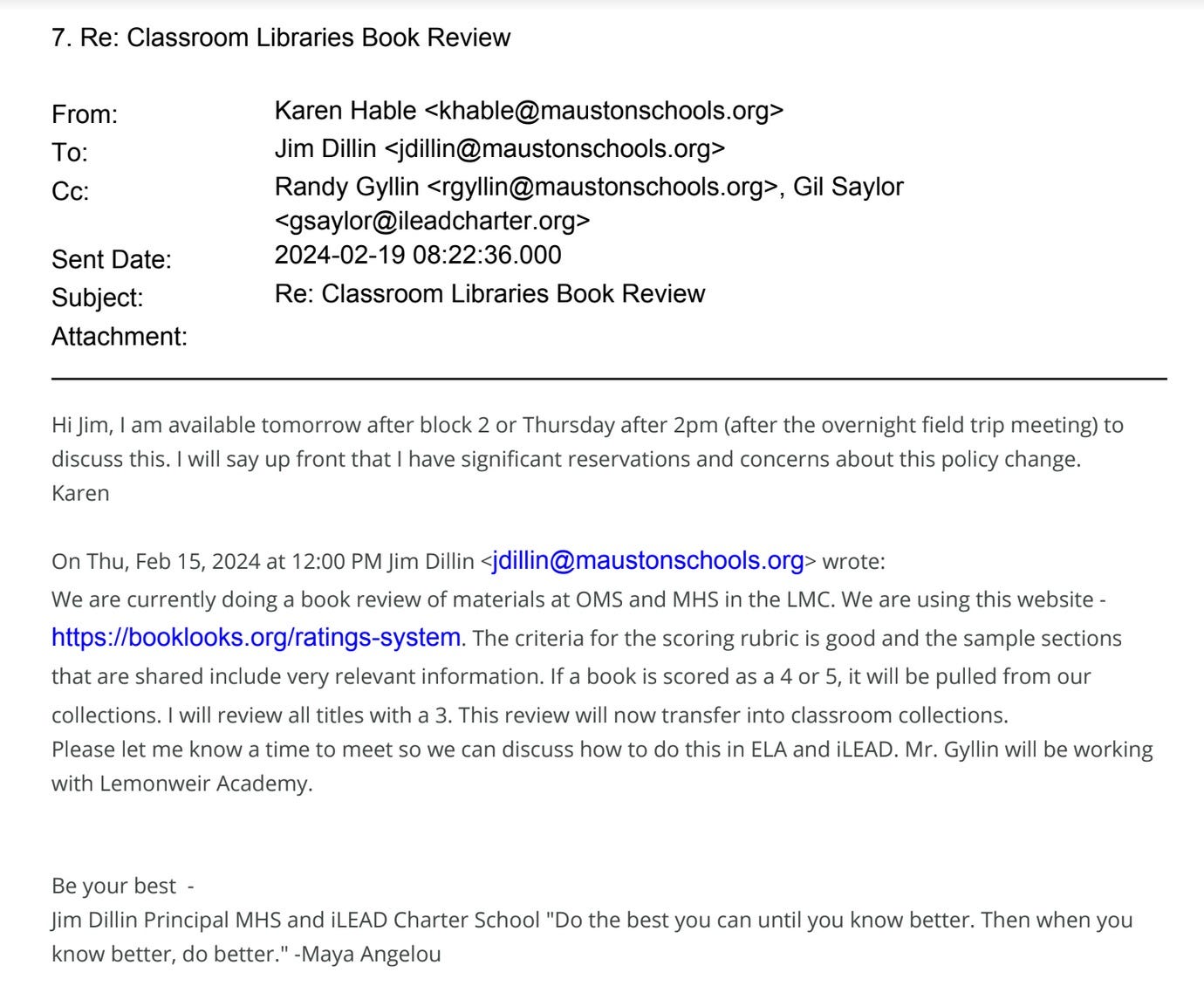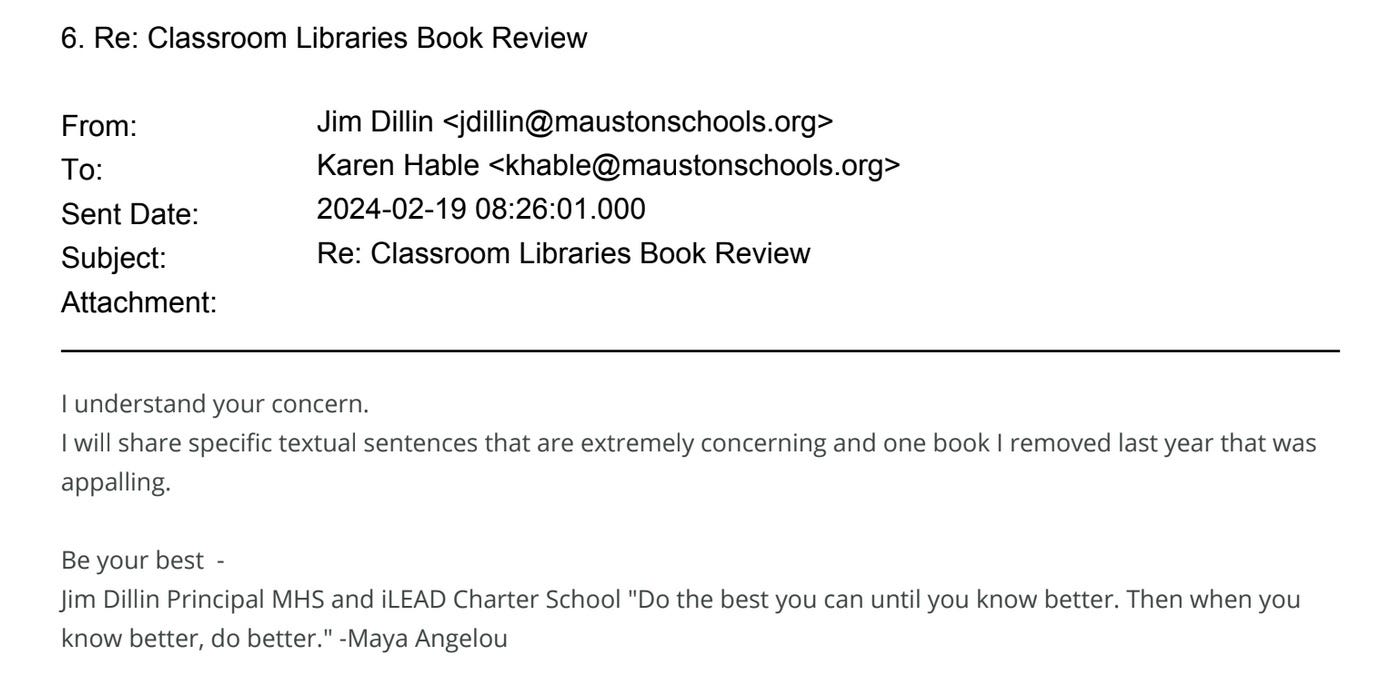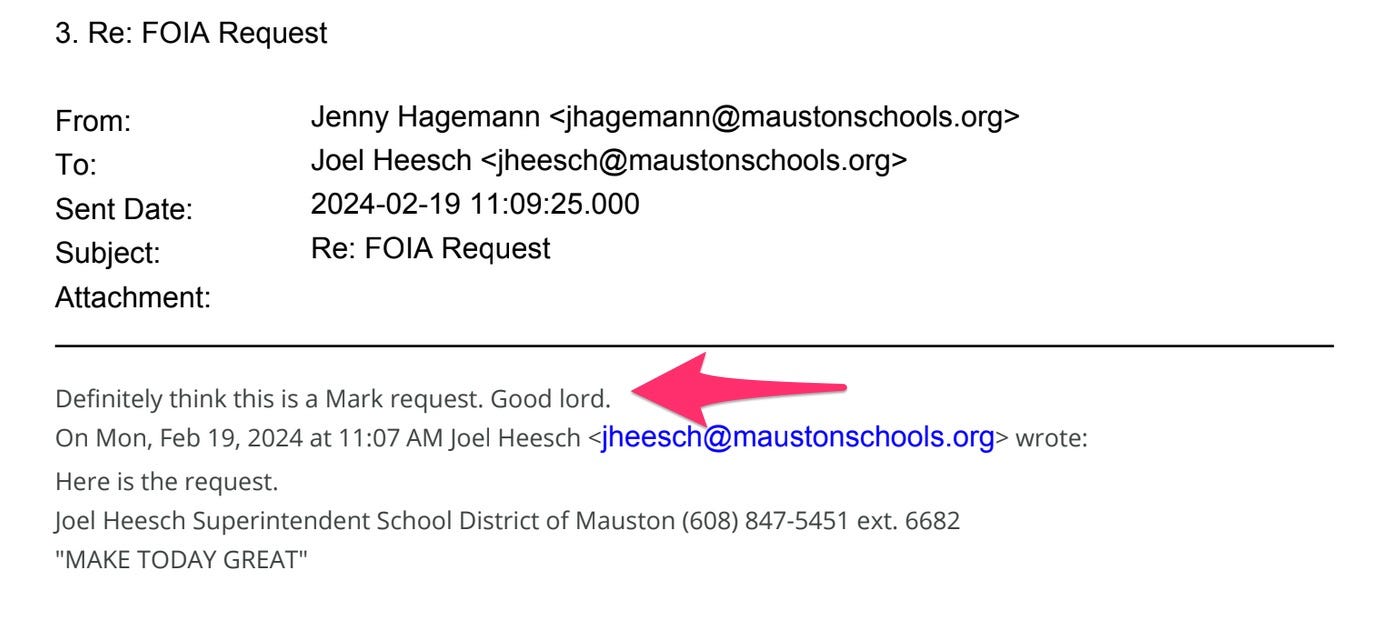Wisconsin School Turns to BookLooks for Pulling Library + Classroom Books
"If a book is scored as a 4 or 5, it will be pulled from our collections. I will review all titles with a 3."
BookLooks continues to get its teeth into otherwise intelligent school and library leaders. The site, created, curated, and promoted by Moms For Liberty, continues to insert itself into conversations about the need for a book rating system to combat the pornographic, obscene, and sexually deprave materials proliferating on bookshelves for children. The very people behind the manufactured problem–there is nothing obscene in library or classroom book collections– have conveniently cashed in with a solution.
The ones who lose are, of course, the kids.
But it’s not just kids. BookLooks and the rhetoric around dangerous books is turning leaders in schools and libraries into victims. As a result of falling for the falsehoods, those leaders make rash decisions that are founded in fantasy and that fly in the face of every lesson they engage in with young people about how to be smart consumers of information, how to navigate fact from fiction, and how to operate in a world trying to sell you a story to make a quick buck.
Mauston, Wisconsin, is a small town in the middle of Wisconsin. It might be familiar to some folks unfamiliar with the state for being a nice place to make a pitstop when driving between Minneapolis and Chicago. The population is about 4400.
The Mauston Public Schools serve 1,500 students, of which 20% are minority and nearly 50% are economically disadvantaged. There are 7 districts in the school.
There is absolutely nothing to suggest something is amiss within the district. Indeed, Juneau County does not have a chapter of Moms For Liberty*. It also has some pretty boring board meeting minutes–just the kind of thing you want to see from school board meetings. Compare the school board minutes for Mauston with those from Phillips Public Library three hours north and it’s night and day.
Imagine the surprise, then, that Mauston Public Schools have elected to implement BookLooks to decide whether or not to keep books on shelves in the middle and high schools.
Perhaps the better phrasing here is that principals at the middle and high schools decided to use BookLooks to get rid of books. None of this came from the school board. The principals sent out the directive at lunchtime on February 15, 2024, within minutes of one another.
There is no context for this decision, but it’s framed in an interesting way. The scoring rubric is “good,” and the cherry-picked salacious passages include “very relevant information.” Relevant to whom? Did the school librarians ask for this? What about the teachers, for whom this is also applicable?
It is concerning for every book rated 4 or 5 to be automatically pulled, with decisions over books rated 3 being left to the assistant principal. Toni Morrison’s Beloved has a 3, so it’d be reviewed by the assistant principal, while Morrison’s The Bluest Eye garners a 4 rating that will mean it is automatically removed.
Within minutes of the email, the first books were removed from a teacher’s classroom.
The assistant principal was thrilled.
Then a teacher speaks up.
He handles it professionally, if not vaguely, and we learn that he’s already removed a book in the past. We don’t learn what book nor the context. Instead, this helps justify the internal decision to implement BookLooks as a censorship tool.
And that’s all.
All of these emails were acquired via Freedom of Information Act Request (FOIA). Requests for a list of books removed from shelves were denied twice, due to those being a request to “create” a record, vs. being record already in existence. Pretty interesting technicality there, as it means you can never learn what books were weeded or tossed from collections because those only exist in singular data points and by asking for a list of those data points, you’re asking for a new record in entirety.
I wish I had more to show, but my FOIA covered all communication between and among those with a district email address with the keywords book looks, booklook, booklooks.org, booklook.info, and moms for liberty between September 1, 2023, and February 20, 2024. Interestingly, this request was forwarded with colorful commentary, too (that stuff does show up in FOIA requests!).
But even this tiny thread of communication tells a chilling story: none of this is known to the community, to students, nor to the board itself. This is a perfect encapsulation of quiet/silent censorship, done with the “guidance” of a made-up ratings system and cherrypicked sample sections of books.
It begs the question of how many schools is this kind new policy the new norm and how many community members–let alone governing bodies like school boards–are even aware of it? BookLooks is not a professional tool, nor will it ever be. When it’s built by a group crying “groomer,” but rates a book about actual grooming, like Lolita, as more appropriate for high schoolers than The Kite Runner, that alone should send up red flags.
How many are skirting by BookLooks and instead utilizing Common Sense Media, which is now so conveniently integrated into book ordering systems like Mackin?
In any case, it undermines the professional knowledge, experience, and expertise of trained library workers and educators. And for what? To buy into a product made by the very people itching to dismantle the entire public education and library system as we know it?
It’s not a good look. It’s a dangerous one.
It doesn’t model the message sitting right there in the signature line of Mr. Dillin: “"Do the best you can until you know better. Then when you know better, do better." -Maya Angelou.”
The reality is knowing better is simply a Google away.
Time to do better.
At this point, if you’re at all concerned about blatant or quiet censorship in your communities, you need to be requesting information from your public institutions. In situations like this one, it’s clear showing up and engaging at board meetings isn’t enough.
*We know Moms For Liberty is not the only group playing the banning game, but this story being about BookLooks makes it particularly relevant.



